As I mentioned last week, I recently underwent a cornea transplant — which means screens have been a challenge these past few weeks 🫠 . I’m still planning to write weekly, but this post and perhaps a few more will be more personal, and less research-intensive, than usual.
That said! If you like this and last week’s posts more than the research-heavy ones, please let me know by comment, email, DM, carrier pigeon, or whatever’s clever. And any other feedback, for that matter — we’re about six months into this, and always looking to improve :)
Thank you — Ted.
For most of my adult life, necessity forced me to travel on a tight budget. International travel was something I saved for, and I stretched those savings as thin as possible within the bounds of good health. (And sometimes beyond.) Even when I worked outside the US in my 20’s — teaching English in Turkey, a summer research internship in India — I always earned just enough to get by. Though “getting by” in these places did, of course, involve as much exploration as possible.
But I started traveling for work in my early 30’s. Big boy work, work where I had an expense budget and shit to get done. Where my employers had good reason to spend money to make that work easier, and faster, and presumably better.
It took a while, but I began seeing downsides in this. Not that I was eager to give it up, but I began to see what gets lost when we lose our budget constraints in faraway places.
And I began to see that while technology has lowered the barriers to travel — we now carry phones that tell us where to go, how to get there, and how to communicate once we arrive — it, too, has drained the act of some vitality.
What I may love most about travel is the thrill of unexpected discovery. New friends, new towns, and new foods with unpronounceable, even unrecognizable, ingredients.
Money and technology can make life smoother, paving over bumps in the road. Flights often arrive on time, while buses do not. Taxis lead to messy frictions: haggling, unwanted conversations, the risk of getting lost, or worse. Uber and Lyft are designed to be slick and reliable — to be “frictionless,” as so many Silicon Valley companies advertised for so long.
It’s often nice when money and technology pave bumps in the road — and, at least in the case of flights and Ubers vis-a-vis buses and taxis, they’re also safer. But when traveling, these very “bumps in the road” often lead to the very unexpected discoveries that make travel so fun, so rich with meaning, so full of life lessons.
Certainly these technologies have lowered the barriers to travel, paving over the speed bumps just as money can. But would my two-hour train stop have been as interesting an experience — as humanity-affirming, as memorable, as educational — with them?
Would I still remember the interaction sixteen years later?
Once while living in Turkey, I rode a long train from Istanbul to the gorgeous hill town of Veliko Tarnovo in eastern Bulgaria. The train stopped en route for a sort of “layover” in a small town far from any tourist destination (even by Bulgarian standards), and I stepped outside to look around.
I found, to my disbelief, that all but my individual train car had vanished. The conductor explained that the train’s front half had gone west to Sofia, and the back half south, to Athens. He said we’d wait at least two hours for another engine and cars to arrive to link up with our little one, before continuing on to Tarnovo.
This was unexpected. I was hungry, and decided to find some food.
I walked a half mile before finding a grocery store, and went inside. But the store — like others I later found in Bulgaria — was of the Norman Rockwell-nostalgia variety we once had in America, where grocers take verbal orders from customers, then hand items across a wide counter.
A shared language is helpful for this. Arguably even necessary.
My Bulgarian vocabulary included a kludgy “thank you” and little more. Google Translate didn’t yet exist and smartphones barely so, and the grocer spoke no English. I doubt the shop, much less the town, encountered many foreign visitors.
But a young man with workable English saw me struggling to communicate and came to my aid. Suddenly he was my personal shopper-helper, recommending foods and ordering them on my behalf.
When I said I’d grown up in Colorado, he became excited and asked, to my shock, if I’d ever skied Vail. He loved to snowboard, and had heard the mountain was gorgeous. I couldn’t believe someone in this tiny town — in the middle of a country most Americans couldn’t even find on a map — knew about a place mere hours from my home.
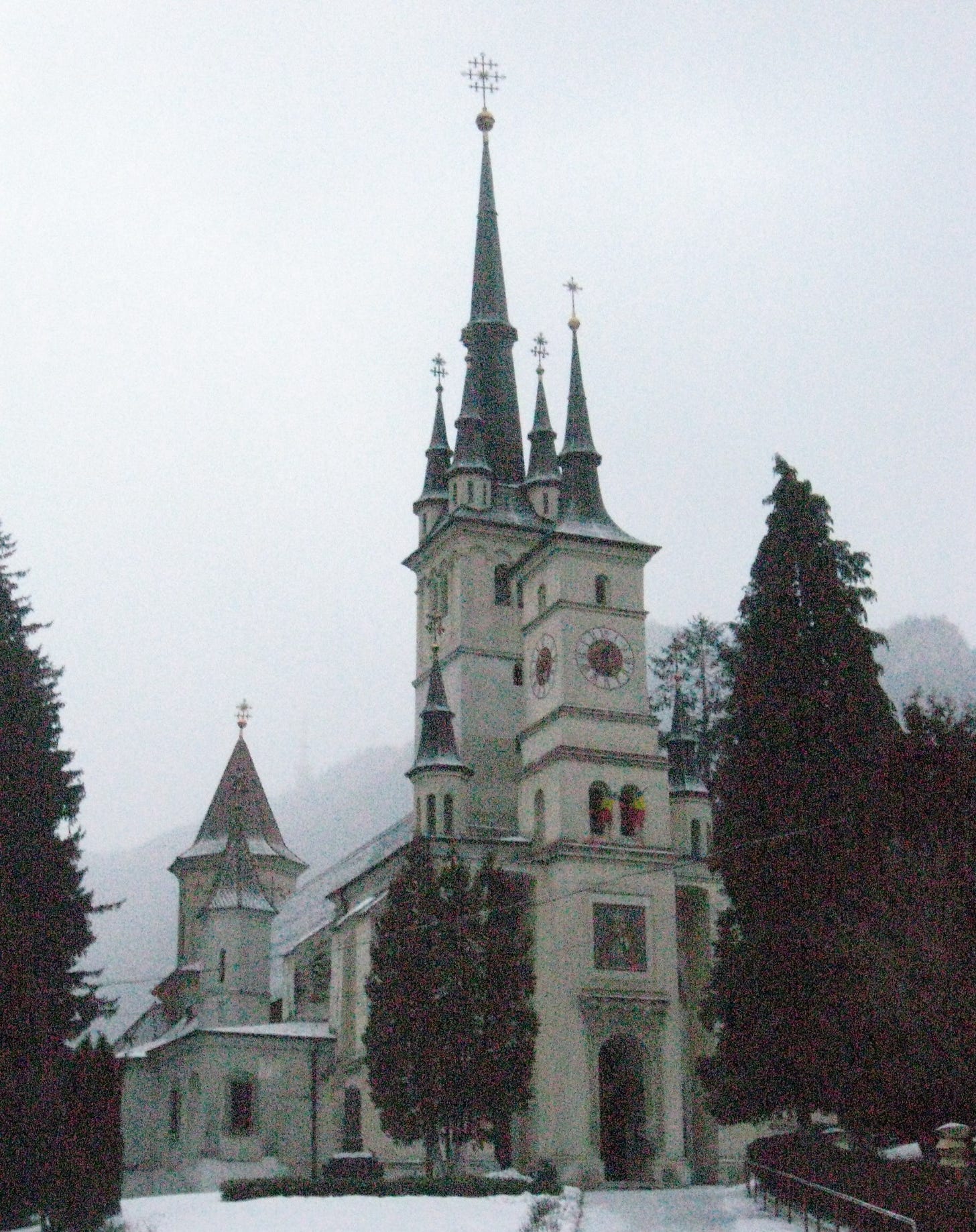
That happened in 2008, sixteen years before I write this, and I remember it well. If nothing else I learned in that moment, at 23, how incredibly small the world can be. And how far some will go to help a bewildered stranger.
I wouldn’t have experienced any of that had I traveled to Veliko Tarnovo by plane instead of train. And even by train, most travelers today might search Google Maps for a restaurant or grocery with English-language reviews or menus. Failing that, they could use Google Translate to communicate with the grocer in Bulgarian.
Certainly these technologies have lowered the barriers to travel, paving over the speed bumps just as money can. But would my two-hour train stop have been as interesting an experience — as humanity-affirming, as memorable, as educational — with them? Would I still remember the interaction sixteen years later?
And I wondered, in that moment on the plane: was this even “travel”? Why was I going to India at all, if my entire experience was to be one big, Americanized, air-conditioned one?
Ten years later, I flew to India for work, with Google. I spoke briefly on the flight with an Indian man who also worked in Silicon Valley, returning home to visit family.
And I thought about my day ahead: I would land in the air-conditioned New Delhi airport, then order an air-conditioned Uber to take me to my air-conditioned hotel. The hotel I’d booked, because it was in my points network, was owned by a large American chain. And I knew from past experience they would offer a menu of mediocre, American-friendly Indian food: the air-conditioned version of the real thing.
The next morning, I would order another air-conditioned Uber to take me to the air-conditioned office, where I would work with highly-paid Indian tech workers. Many of whom had studied in American schools, enjoyed American films, listened to American music, and wore American brands.
And I wondered, in that moment on the plane: was this even “travel”? Why was I going to India at all, if my entire experience was to be one big, Americanized, air-conditioned one?
Several months later, I visited India again — this time to Mumbai. I’d never been, and one free afternoon I went south to see the city’s historic buildings. Mumbai’s population hovers around 20 million, and it’s a chaotic, amazing place. Suketu Mehta wrote a book named Maximum City: Bombay Lost and Found, and indeed it is. I took a photograph on that trip while in a dense business area of a man in full suit, speaking on a mobile phone, walking past a family with a cow.
I ordered an Uber to the historic district, and checked email as we crawled through the city’s brutal traffic. When we finally made it, I enjoyed walking around the historic center — and dreaded the drive back north a few hours later.
When time came to return to my hotel, I reluctantly ordered an Uber and waited for a driver to connect in the rush hour traffic. And then I waited, and waited some more.
And it occurred to me — ashamed and astonished it hadn’t earlier, a fan of public transit and trains if ever there was one — that I could just take the train.
But I was in “work travel mode,” a kind of dull corporate fugue state, and Uber my default transit choice. I was wearing nice work clothes, carrying my laptop, and would expense the Uber cost anyway. An image I’d seen as a child — men clutching to the roof and sides of a Mumbai commuter train on some American news show — flashed through my mind, and I wondered, ashamedly, if that’s what I’d find.
I recalled my last trip though, my angst about flying halfway across the world to experience American brands and air conditioning. I wanted to actually be in India, dammit. I walked the short distance to the station, unsure what awaited.
The station was nearly empty. I bought a ticket with ease, walked onto the train, and away we went. It was an old car — the Indian government is slowly phasing them out — the kind where the doors don’t lock, even when the train is moving. I have been fortunate enough to experience these many times, and there is a singular delight in standing before a train’s wide, open door as it whooshes past the landscape.
I smiled as we pulled away from the station, watching poles hoisting electric and internet cables blip past the open door like a film reel. I felt the wind blow my hair. No traffic. No email. No honking.
An older man seated nearby cautioned me to be careful, and asked where I was going. I told him the name of the station, “Dadar,” and he counted out stops on his open hands. He held up eight fingers and said, “Dadar, eight stops.”
At the next stop he rose from his seat, touched my shoulder, and said, “Seven stops.” I made sure to look his way at the next, to nod and say “Six,” before he could rise again.
With three stops remaining, he exited the train. But as he did, he pointed at me and instructed another man who’d just boarded to do the same. The new guy wasn’t as enthusiastic, but did as the first asked. “Two stops,” he mumbled, and then “One stop,” and then I thanked him and exited the train.
I walked to my hotel smiling, and smiled as I remember this story years later. The same lessons I learned in Eastern Europe in my early 20’s, the willingness of so many people to help a stranger looking like he needs it.
This memory, this story, wouldn’t exist had I called an Uber that day. I would have grumbled at traffic, checked my email, perhaps chatted with the driver. Short of a crash, any memory of the ride would probably just blend into the same vague, aggregate mass of memory where I store most other taxi rides I’ve ever taken.
Opting-in to the type of travel filled with speed bumps get harder as we get older, of course. We have families and jobs we care about, schedules to keep and sadly even emails to send. And I think — at least, for me – my tolerance for “adventurous” delays has decreased significantly with age.
But there’s something sad in this.
I recently overheard a young woman in Vietnam tell a companion how her bus from Laos had taken twenty-four hours. The bus only stopped for the bathroom once.
I wondered how much I would pay to avoid that experience, to take a flight instead. Twenty-four hours! One benefit of age is that many of us no longer must travel by the cheapest, most masochistic means available.
But then I thought how her bus ride will surely make for a better memory than most any flight. A flight which, like the Uber ride I almost took, would probably blend into the same big memory-mass of so many others just like it.
And the bus will make for a hell of a lot better story fifteen years from now, too.
Song of the Week: ROSALÍA — F*cking Money Man (Milionària + Dio$ No$ Libre Del Dinero). The second song translates into “God free us from money.”

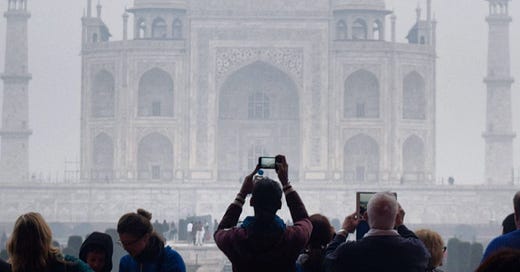



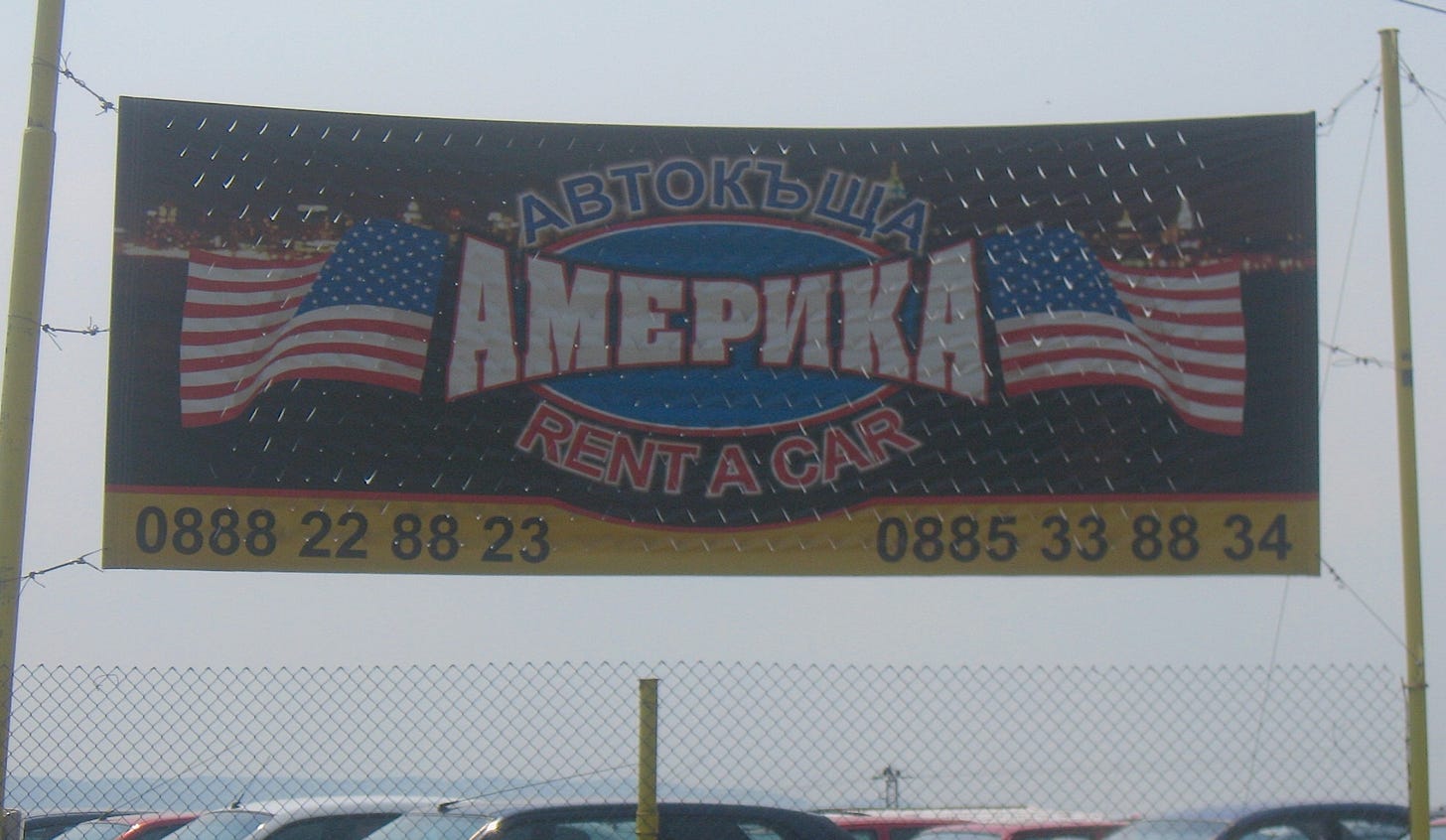
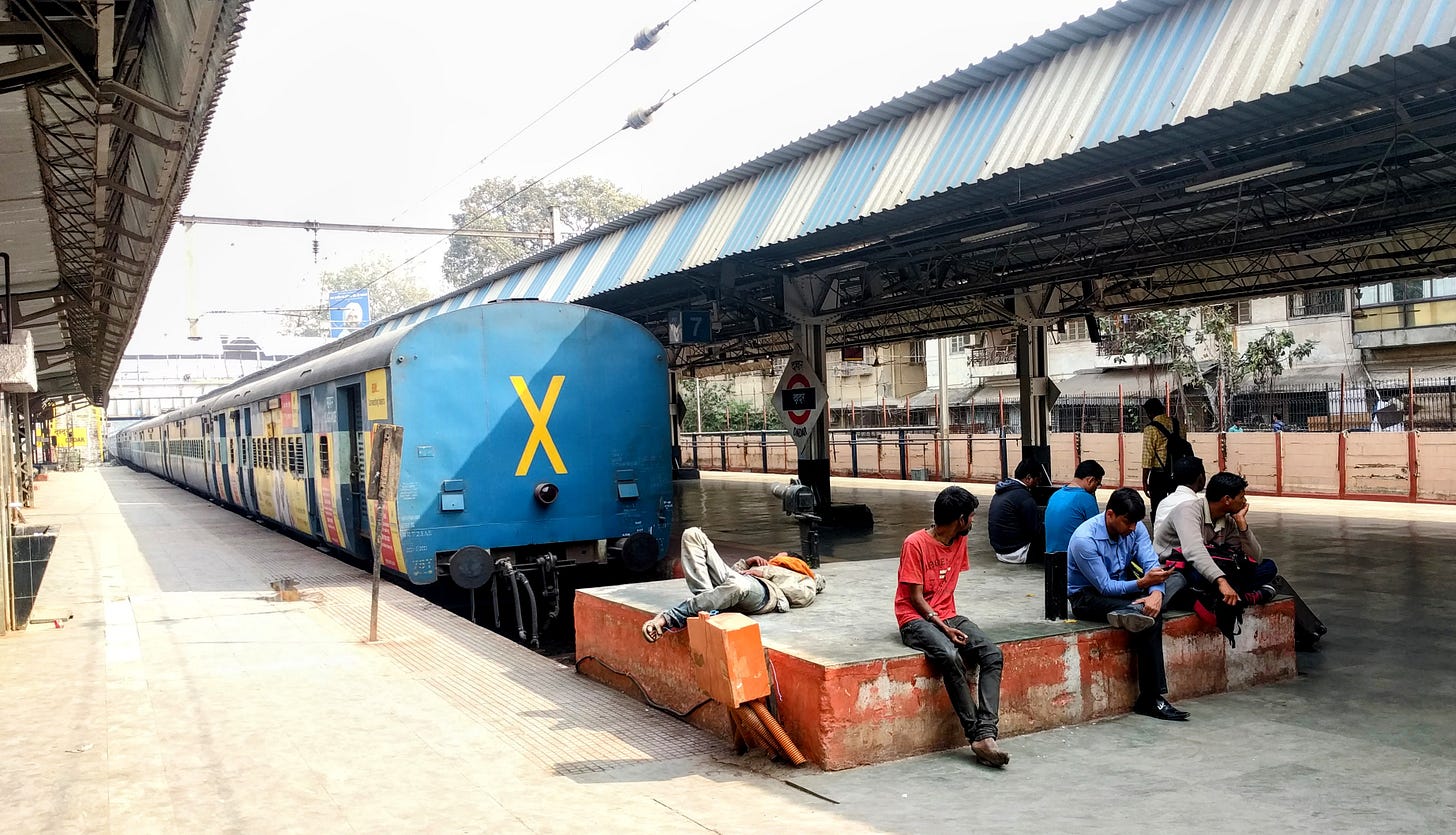
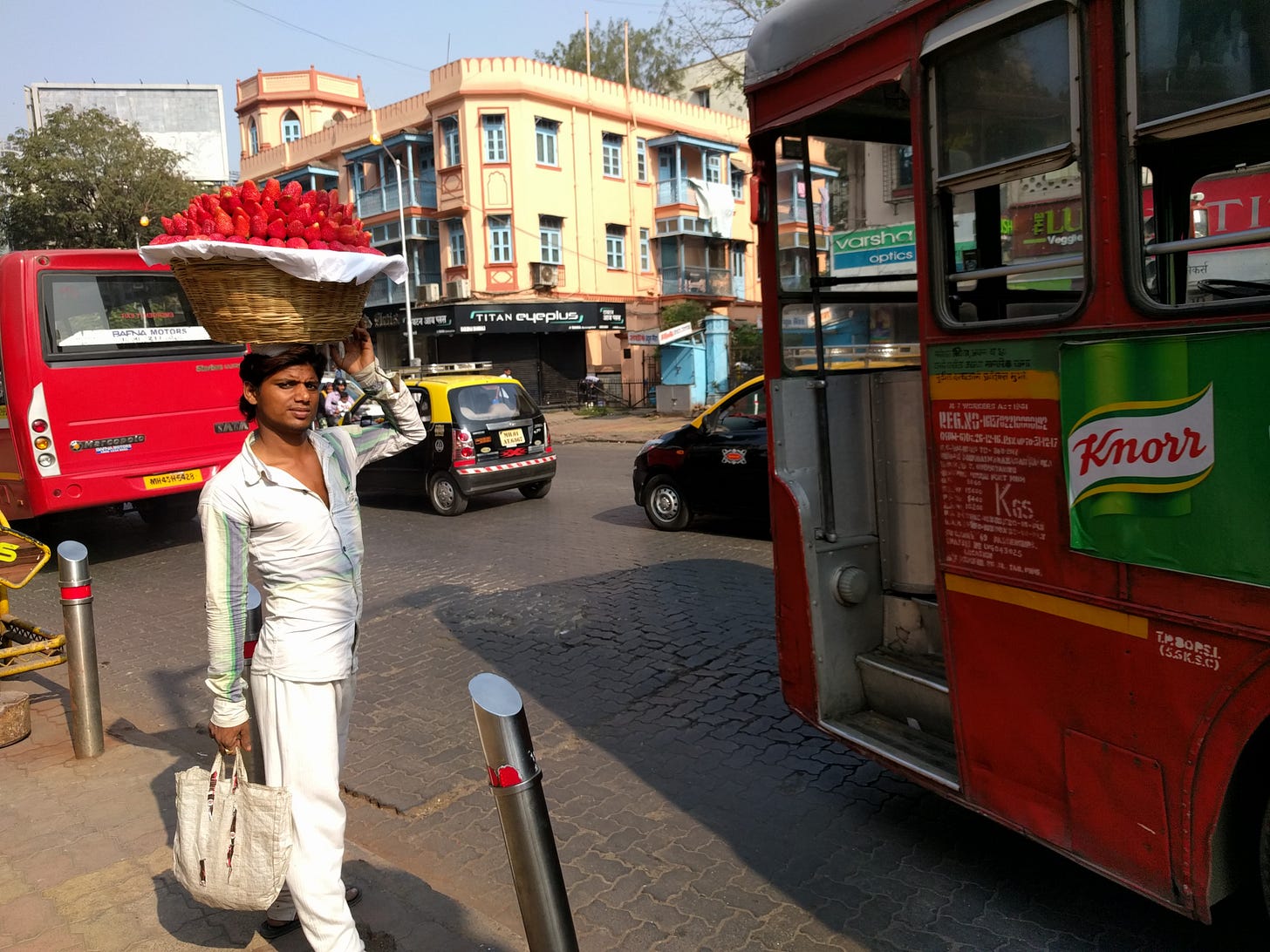
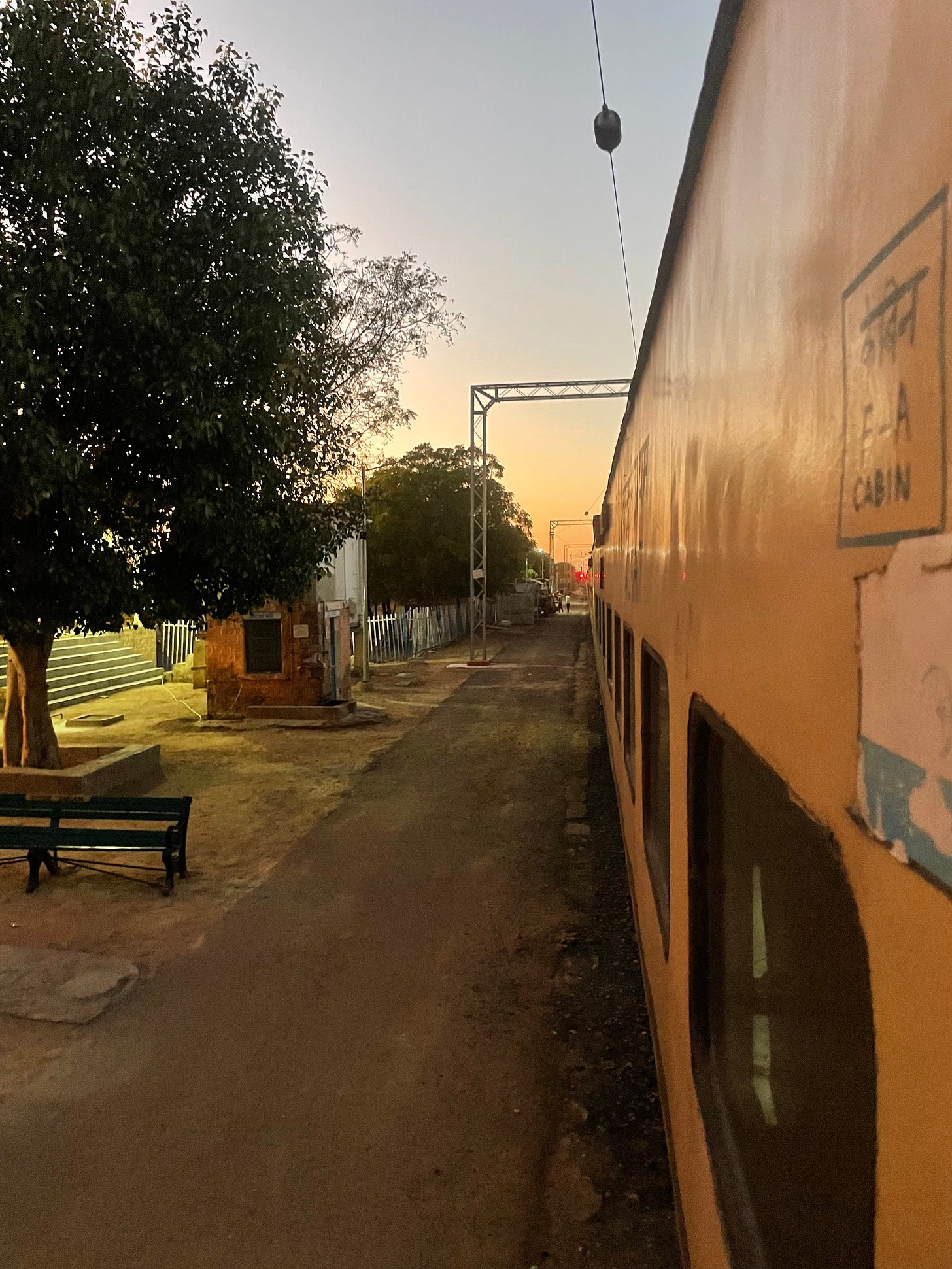
And I wondered, in that moment on the plane: was this even “travel”? Why was I going to India at all, if my entire experience was to be one big, Americanized, air-conditioned one?
Loved this line! Just came back from a trip to New York & was thinking also about the serendipity we lose when we map to a specific place and take the most optimal mapped route from here to there, vs. walking through, following whims and letting the city guide us / shift our plans :)
I love this! All of it. And yes, resources are (as are all things) a mixed bag. My favorite statement was: "I found, to my disbelief, that all but my individual train car had vanished. The conductor explained that the train’s front half had gone west to Sofia, and the back half south, to Athens." And only on a long Eastern European train trip on which you stay awake and wander about could this happen. I love it. Thank you for taking the time and the care to share these things with us.